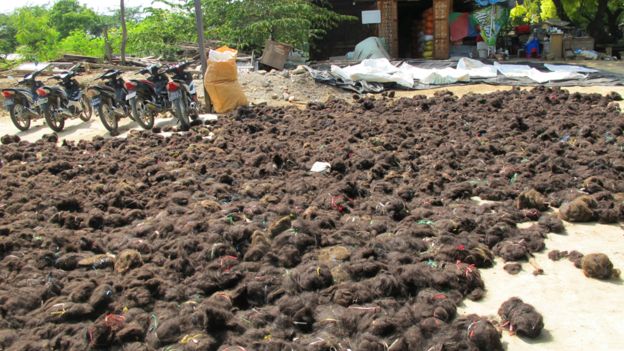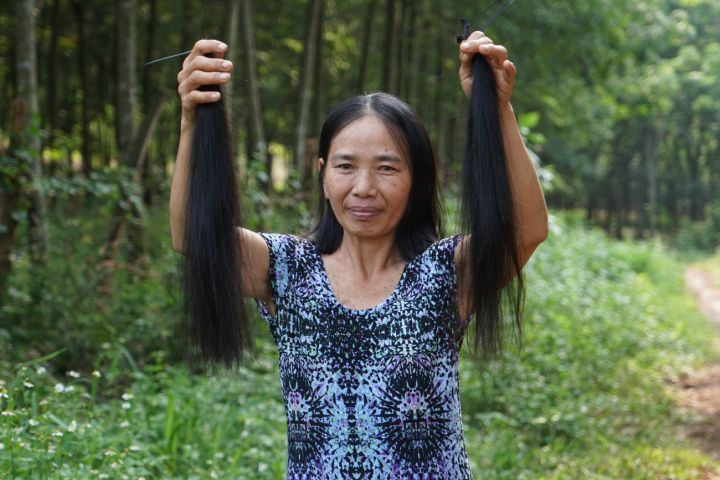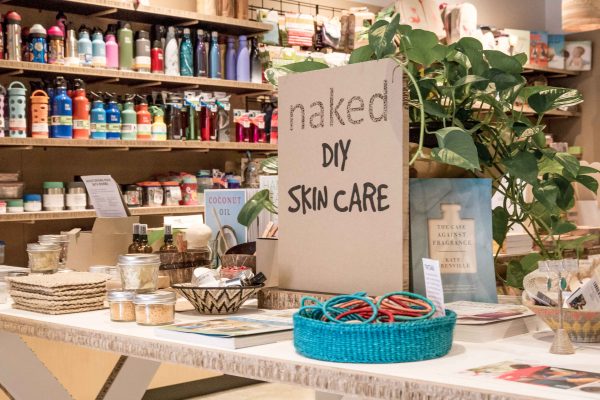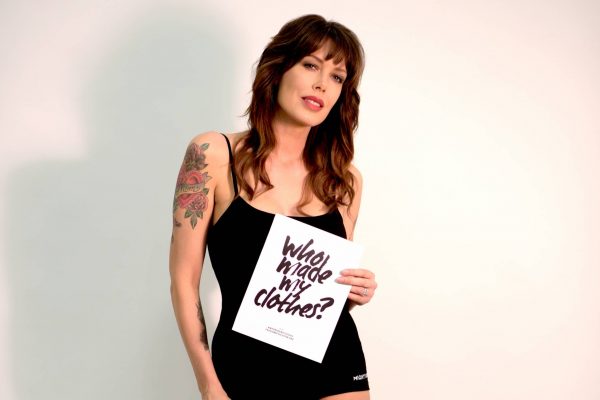Fast food, fast fashion, and fast lifestyles.
This is how we now live our lives: at a rate that gets us everything instantly. The same goes for hair.
Why wait years for your hair to grow when you can gain the same effect in an instant?
The hair extension industry is booming. Celebrities are rocking them daily, and for most people it’s now part of their usual ‘going out’ routine. Just add a few tufts and waves here and there, and you’re set to go.
But, are hair extensions ethical?

The ethics behind the hair industry
The hair industry has always been a shady one. Just like fashion, traceability of the production line is unregulated and incredibly corrupt.
Hair brokers (yes, that is a job title!) are trained in fooling buyers and salons, and they may have even been deceived by their source, too. Hair can go through several pairs of hands before it reaches your head: the donor, the collector, the agent, the factories, and the salon.

The story behind the hair may come as a shock to you.
Sustainability, straight to your inbox
Monthly tips, stories, and inspiration to make living greener easy
Behind the hair extensions lying on your dresser, or hanging heavy on your head, is a decision. A decision made by a woman to battle poverty, feed her family, and better her life. That hair has seen years of experiences somewhere in the world. It’s been brushed and tended to, admired and loved.
Yet, the person who grew it for you, may have only been paid a few dollars for it.
That’s right, those 40cms of long luscious hair that you paid hundreds for, were cut off the head of a woman desperate to feed her family that week, and down to the last resort. If not a woman, a young girl exploited and abused. This is the reality on the other side of the hair exchange, whilst you sit comfortably with your full head of hair.
Refinery29 published an article about the industry which you can read here.
“There’s no shortage of stories of women and children being attacked for their hair — robbed by gun or knifepoint in Venezuela, India, South Africa, Ukraine, Myanmar, and elsewhere — and held down as thieves forcibly cut off their ponytails. Without required traceability, the door is left open for this to happen all over the world by criminals hoping to make a quick buck on virgin hair.”
So, where do hair extensions come from?
China is known as the world’s largest hair exporter. If your hair is labelled Brazilian or Indian, chances are, a small or large percentage of it is from China. Brazilian hair is in high demand, but scarce as there are very few mass collection sites, unlike India. Millions of Indian men and women of all ages sacrifice their hair to the gods in a sacred ceremony called Tonsure. The hair industry has taken advantage of this mass collection point, and turned it into a 7-million-dollar revenue stream. The hair on your head could have been donated to you through a religious ceremony in India, or the exploitation of a woman in China.

Image via BBC
Alternatively, your new luscious locks may be made from a mix of plastic, and what is known as ‘fallen hair’. Fallen hair is sourced from drains, floors, and hairbrushes, detangled, processed with chemicals, coated with silicon, and sometimes even mixed with animal hair to make it go further. This plastic-coated hair attempts to mimic ‘virgin remy’ (natural, real hair), so hair brokers can make their millions from a fake product that cost them nothing.
Yep, that’s right, your hair could have come from the drain. Perhaps that’s embracing zero waste living, but the chemicals involved in turning drain-hair into locks passable to go on your head, are not the environment’s friend.

How to shop ethically
This was published in 2018 – for more up-to-date information, we recommend this story on The Good Trade to help you source ethical hair extensions.
Fair-trade hair. Along with your fair-trade bananas, fair-trade hair is traceable, and sourced ethically from the beautiful human-being who made the decision, on their own accord, to have their hair cut and used by someone else. But this won’t happen if we don’t ask.
Look for companies like Great Lengths and Woven Hair, who strive to source fairly.
“Our prices are anywhere from five to ten times our competitors, which is why we’ve recieved dangerous threats.” – Dan Choi, Founder of Remy New York
Hair is empowering, it is expressive, and it is part of who we are. Using hair extensions isn’t a crime; it’s just another way to artistically express ourselves. But it shouldn’t come at the cost of another person’s dignity and humanity. Developing countries continue to suffer from westerners wanting to look good, and it’s not okay. The best thing we can do it ask questions, and increase the demand for fair-trade hair.
Feature photo by Ömürden Cengiz on Unsplash


